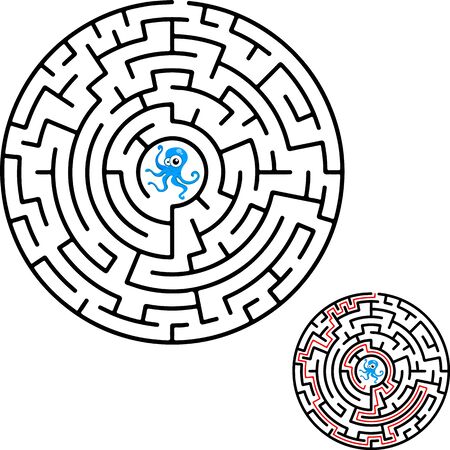Moonlit Myths: A Spot of Lunar Lore
If you’ve ever wondered why Auntie Mabel insists on clutching her amethyst during a full moon, or why your neighbour swears their sheep get “funny ideas” when the moon is high, you’re about to tumble down a rabbit hole deeper than the London Underground at rush hour. British folklore positively brims with moonlit madness, and it’s not all howling at the moon—though there’s plenty of that, too. From the windswept Yorkshire Moors, where tales of werewolves make even the bravest terriers think twice before a midnight stroll, to Cornwall’s mischievous piskies who are rumoured to throw wild lunar parties (no invite required), the moon has always had a starring role in our collective imagination. Whether it’s portents of doom, promises of romance, or simply an excuse for villagers to dance like no one’s watching (which, under the cover of darkness, they probably aren’t), the lunar cycle has been as central to British folklore as tea and a good moan about the weather. So pop on your wellies, grab a torch, and prepare to explore the hilariously odd ways our ancestors blamed everything from crop failure to emotional wobbles on that big glowing orb in the sky.
2. From Full to New: The Lunar Calendar in British Life
Let’s take a jaunt through time, shall we? Imagine ancient Britons, fresh from inventing the wheel (or at least tripping over a few), staring up at the moon and thinking, “Cor blimey, that big cheese in the sky keeps changing shape!” Thus began Britain’s love affair with the lunar calendar—a system so complicated, it could make even the Queen’s corgis howl.
Lunar Lunacy: From Stonehenge to Shakespeare
Stonehenge wasn’t just an epic Instagram backdrop for druids. Archaeologists reckon those massive stones might have doubled as a prehistoric lunar clock. Need to know when to plant your turnips or host a midsummer rave? Just check where the moonlight hits your favourite sarsen stone. Fast forward to Shakespearean times, and everyone from witches to weather-obsessed peasants believed the moon controlled everything from madness (hence “lunatic”) to how well your cabbage would grow.
Moonlit Agriculture: Why Spuds and Stars Align
The British countryside was once ruled by a calendar not of months, but of moons. If you thought astrology was all about star signs, think again—try planting potatoes during a waning crescent if you fancied famine. Here’s a handy guide for those who like their gardening advice served with a side of superstition:
| Lunar Phase | Traditional Belief | Suggested Activity |
|---|---|---|
| Full Moon | Peak power—plants thrive! | Sow leafy veg & host questionable poetry nights |
| Waning Moon | Energy declining—avoid starting new projects | Weed garden, reflect on life choices |
| New Moon | Time for rest and renewal | Bake bread, gossip about neighbours |
| Waxing Moon | Growth is on the rise—ideal for spuds! | Plant root crops & make grand plans you’ll abandon later |
The Nightlife of Lunar Enthusiasts
If you think modern Brits are obsessed with weather apps, imagine their ancestors tracking moon phases with the intensity of someone awaiting pub opening hours. From moonlit Morris dances to midnight potato planting, following the lunar cycle wasn’t just practical—it was practically mandatory. After all, why trust your own judgement when you can blame everything on the moon?

3. Loony Tunes: The Moon and Madness
If youve ever wondered why Aunt Mabel insists on blaming the full moon for her ever-growing collection of mismatched socks, youre not alone. In fact, her peculiar theory has roots deeper than her laundry basket—right in the rich soil of British folklore. For centuries, the British have eyed the lunar cycle with both suspicion and a touch of melodrama, convinced that every full moon brings more than just tides and werewolves. It’s said to stir up emotional wobbles, odd behaviours, and, apparently, sock-related chaos.
The Lunacy Legacy
Let’s be honest: ‘lunatic’ didn’t become a term for wild behaviour by accident. Medieval Brits were quick to point out that the moon (Luna) had a knack for nudging people into all sorts of antics—from howling at the sky to reorganising their kitchen cupboards at midnight. The local apothecary might have blamed your restlessness on “lunar influences,” while the vicar quietly prayed it wasn’t something more sinister. Whether you were a noble or just nobly confused, everyone agreed: blame it on the moon.
Mismatched Socks and Emotional Mismatches
Fast forward to modern Britain and not much has changed (except perhaps our taste in biscuits). Aunt Mabel’s odd sock pile is now seen as a symptom of “full-moon fever,” an affliction known to cause everything from emotional outbursts to impromptu dance routines in Tesco’s frozen aisle. According to folklore, each lunar phase tugs at our moods like a toddler on a biscuit tin—sometimes leaving us feeling inspired, sometimes just plain daft.
From Folklore to Feelings
British stories are littered with accounts of the moon meddling in mortal affairs. Fishermen swore by its phases for good luck; poets wrote odes about its fickle nature; and anyone who’d lost their keys was sure to pin it on lunar mischief. Today, whether it’s Aunt Mabel’s sock saga or your mate Dave feeling extra sensitive after a night out, the British still love a good lunar scapegoat. So next time you find yourself blaming the moon for your emotional ups and downs—or missing socks—just remember: you’re in excellent company.
4. Tide and Time Wait for No Moon: Lunar Rhythms and Emotional Swings
If there’s one thing Brits adore more than queuing or a good moan about the weather, it’s blaming the moon for their emotional shenanigans. From the full moon’s alleged power to turn up the volume on pub karaoke disasters, to new moons supposedly synchronising with midweek existential crises (preferably on a damp Wednesday), lunar cycles have become the ultimate scapegoat for our collective emotional rollercoaster.
The British Art of Moonblaming
Let’s face it: nothing quite says “British folklore” like attributing everything from insomnia to spontaneous philosophical outbursts in Tesco to the waxing and waning of that big shiny cheese in the sky. After all, why take responsibility for your own mood swings when you can simply point at the moon and mutter, “Must be a full one tonight”? Here’s a quick reference guide for those keen to keep up with this fine tradition:
| Lunar Phase | Classic British Emotional Response | Excuse Provided |
|---|---|---|
| New Moon | Mild existential dread Tea consumption spikes |
“It’s so dark, I can’t even see my own optimism.” |
| First Quarter | Slight optimism Sarcasm levels moderate |
“I suppose things could be worse… or not.” |
| Full Moon | Karaoke confidence Pub tears and dramatic sighs |
“Full moon fever—can’t help it!” |
| Last Quarter | Pensive reflection Biscuit hoarding |
“The moon’s waning, just like my willpower.” |
The Science Bit (Or Lack Thereof)
While scientists have been desperately trying to find any solid evidence that lunar cycles genuinely sway our emotions, most studies suggest that the only proven link is between a full moon and werewolves (or, at least, people howling about Southern Rail delays). Yet, in true British fashion, we persist. Why let facts get in the way of a perfectly good excuse?
Lunar Blame as National Pastime
This isn’t just whimsical nonsense—no, it’s practically a heritage sport. Next time someone launches into an impromptu monologue about life’s futility over a pint, simply nod sagely and say, “Ah yes, must be the moon again.” It works wonders.
Conclusion: Long Live Lunar Lunacy!
The art of blaming the moon is woven into the tapestry of British emotional wellbeing. Rainy Wednesdays may come and go, but rest assured—when in doubt, blame the moon. It’s tradition.
5. Romance, Rhyme, and Moonlit Muddle
If there’s one thing the British love more than a good cup of tea, it’s waxing lyrical about the moon. Honestly, you can’t flick through an anthology of British poetry without tripping over a lovesick Victorian wailing at the night sky, convinced that their romantic fate is tied to a particularly luminous full moon—preferably shining through a light mist of drizzle. The moon has been cast as both Cupid’s accomplice and the ultimate wingman in countless soppy verses, despite the best efforts of inclement weather and the odd sheep wandering into view.
Let’s be honest: British attempts at moonlit romance are often more “wellies in mud” than “waltzing under silver beams.” Yet, the lunar muse persists. Poets from Wordsworth to contemporary Instagram bards have all tried to rhyme “moon” with “June” (and sometimes “spoon”), believing that lunar cycles somehow make hearts flutter—never mind if those hearts are also slightly damp from an unexpected downpour on Hampstead Heath.
In truth, much of this moon-inspired wooing is muddled by reality. Grand gestures beneath a glowing orb might sound magical until you’re dodging puddles and shivering in a cardigan your nan knitted. Nevertheless, the idea lingers in British folklore: that lunar phases can stir passions, inspire questionable serenades, and prompt otherwise sensible people to compose love notes by torchlight while swatting away midges.
But perhaps this is what gives British moonlit romance its unique charm—the blend of earnest hopefulness and comedic mishap. After all, nothing says “I adore you” quite like quoting Shakespeare to someone who’s just slipped on wet grass or reciting poetry while sheep bleat disapprovingly nearby. The moon, ever patient, shines down on these scenes of affection and awkwardness alike, ensuring that romance in Britain remains delightfully muddled—and never too far from a punchline.
6. Modern Moongazing: Why We Still Howl at the Sky
Let’s face it—Britons haven’t exactly stopped gazing wistfully at the moon, pint in one hand, smartphone in the other. While our ancestors may have been busy weaving tales of werewolves and moonlit crop circles (thanks, Somerset), today’s moongazers are armed with a blend of science, superstition, and a healthy dose of cosmic confusion. The full moon still has us blaming everything from dodgy sleep to questionable Friday night decisions on its silvery glow—because nothing says “it wasn’t my fault” like invoking lunar lunacy.
The Science Bit… Sort Of
Modern Brits love a good factoid, especially if it means sounding clever down at the pub. Yes, we know the moon affects tides (thank you, GCSE physics), but that doesn’t stop Barry from insisting that his neighbour’s cat is extra weird every full moon. Research is quoted left, right, and centre—often with more enthusiasm than accuracy. So while scientists argue about whether lunar phases genuinely impact mood or behaviour, the British public nod sagely and top up their tea, confident that there’s something going on even if no one can quite agree what it is.
Lunar Lingo: Superstition with a Side of Sarcasm
Superstitions haven’t gone anywhere; they’ve just had a modern makeover. From avoiding haircuts during eclipses (just in case) to planting veggies by the moon’s cycle (because why not?), Britons are still mixing ancient wisdom with a pinch of sarcasm. After all, if your garden fails, you can always blame Mercury retrograde—or was it the waning gibbous?
Mystical Meets Modern: Instagram vs. Druids
Forget stone circles and secret midnight gatherings; nowadays, you’re more likely to find aspiring mystics snapping #FullMoon selfies on Primrose Hill than chanting incantations in Wiltshire woods. Apps track lunar cycles for everything from yoga routines to best dates for decluttering your flat (Marie Kondo meets Merlin). The result? A delightful mash-up where science meets old wives’ tales—and everyone gets an excuse for a little celestial drama.
So whether you’re howling at the sky or simply blaming your late-night biscuit binge on lunar vibes, remember: in Britain, the moon will always be part magic, part mystery, and entirely open to interpretation—preferably with a cup of tea under its glow.


